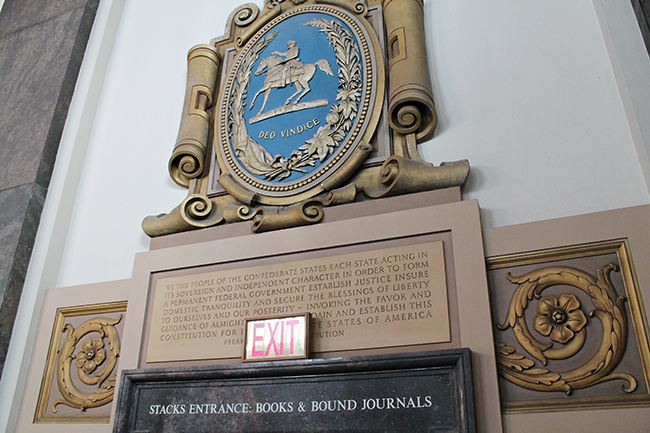Much to the satisfaction of many students, Confederate statues on the Main Mall were taken down late last Sunday night. But this decision didn't please everyone. A descendant of George Littlefield, Steven Littlefield, is suing President Gregory Fenves for the removal, claiming Fenves is failing to uphold the promotion of the “Southern perspective of American history” on campus that George Littlefield expected to preserve through his land, money and statue donations over 100 years ago. But while that may be the wants of one donor, the majority of current students have been calling for the removal for years.
These conversations between campus administrators and students date back to 2003, when a task force recommended the removal of the Jefferson Davis statue; then, in 2015, the Rotnofsky-Mandalapu campaign centered much of their tenure around just that. And while not everyone on the 40 Acres believed in this movement, the vast majority did, and students found their rallying cry successful.
In short: The statue debate is not new. Such conversations have been happening for years in private, slowly creeping into the public consciousness but often starting at universities — ours included.
Young people understand the rationale of other young people. We’re more active on social media, giving us yet another outlet to engage with these issues, and, despite the efforts from administrators to better connect with students, there’s naturally going to be a slower transfer of information from our inner circles to theirs.
Administrators knew we wanted Confederate memorabilia gone, but they didn’t acknowledge the urgency or reasoning until something catastrophic happened, simply shrugging the statues off as part of our history. It took the death of a young woman protesting a white supremacists’ rally around Confederate statues on the University of Virginia’s campus for UT students’ concerns to be validated by our administration.
While it’s true campus administrators must orchestrate a balancing act between conservative donors and a liberal student body, there’s still an economic incentive to listening to current students: We are the University’s future donors. Give us some time, and we’ll be the benefactors. So hear us out.
I am proud to say I go to a school that’s finally being proactive. It’s understandable that the tragedies on UVA’s campus would make administrators weary, but we should not have gotten this far. Students understand public perceptions of these artifacts and have continuously articulated this foresight to administrators. It’s counterintuitive for a university to dismiss student concerns as nothing but a bunch of academic over-analyzations and over-sensitization from a “woke” young crowd.
But for now, we still have some work to do here on the 40 Acres. Buildings named after Confederates have a similar force to that of statues, and Longhorns have been voicing their concerns of this for, once again, quite some time. There’s an inscription of the Confederate Constitution on the Tower’s Life Sciences Library, and while Simkins Hall was renamed Creekside, there’s still Littlefield Dormitory.
The statues are a good start, but if administrators have learned anything from the past, they know that students’ calls for eradication of other Confederate memorabilia on campus are not to be swept under the rug. They are based in the reality of a power dynamic, and although we are never going to be able to change UT’s ties to the Confederacy, we can at least stop glorifying it.
We have now seen the predictive power of students’ voices, so it’s time for administrators to extend their ear beyond the echoes of the Tower and the prattle of donors and look more toward students for input on campus issues.
Vernon is an anthropology and rhetoric and writing junior from The Woodlands. She is a senior columnist.





















